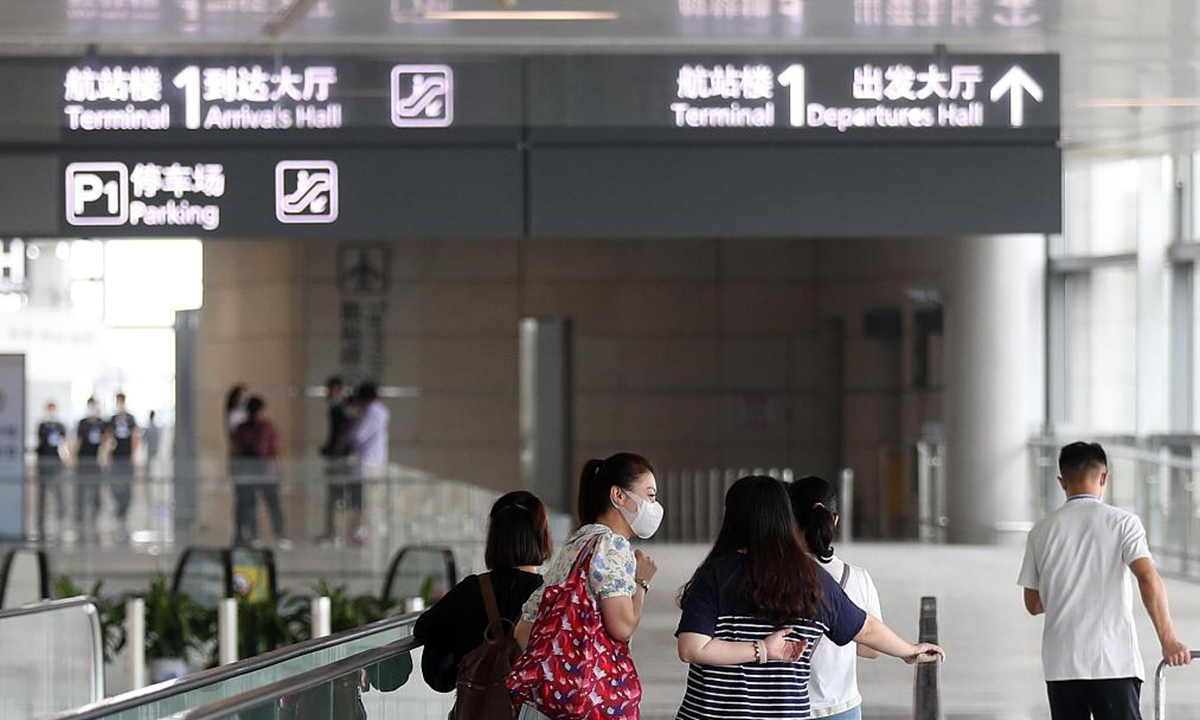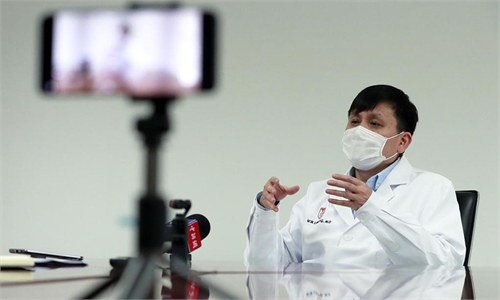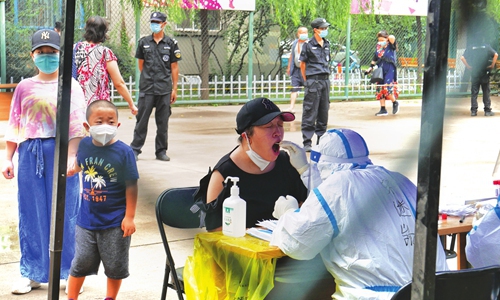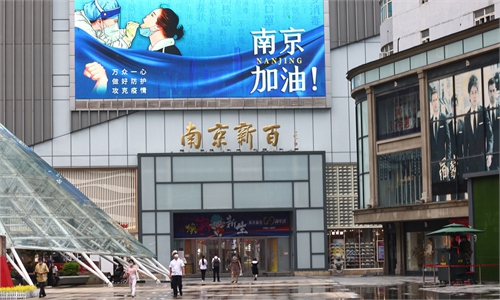Flight from Russia source of E. China Nanjing outbreak that prompts closure of 'Avatar' set

Nanjing Photo:VCG
A flight from Russia, which was suspended several times by the Chinese aviation regulator for carrying COVID-19 patients, was identified as the source of the latest outbreak at Nanjing Lukou International Airport in East China's Jiangsu Province, the Nanjing health authority said on Friday.
Airport cleaning staff were infected while cleaning the airplane's cabin, it said.
The latest COVID-19 outbreak, which had involved more than 200 people in six provinces and two municipalities — Beijing and Chongqing — exposed the loopholes in the virus prevention work of some airports, which had "loosened guard" as the epidemic is generally controlled domestically, public health experts told the Global Times on Friday.
Virus sequences that infected the cleaners, the earliest patients in the outbreak, were the same as those found on imported cases on flight CA910, which arrived in Nanjing on July 10 from Russia, the local authority said.
Virus analysis confirmed they were on the same infection chain, and the sequence is the highly contagious Delta variant.
The cleaners might have failed to obey personal protection requirements when cleaning the cabin. The cleaners were in charge of disposing garbage for domestic and international flights, creating the possibility of others getting infected by contacting the cleaners or contaminated environment, the Nanjing Center for Disease Control and Prevention said at a press briefing on Friday.
Flight CA910 has been suspended at least 10 times due to "circuit breaker" measures for inbound flights, which stipulated a flight be suspended for a week if five or more passengers tested positive, or longer with more infected passengers.
In its 10 flights that triggered a "circuit breaker," CA910 has flown a total of 69 COVID-19 patients from Moscow to Chinese cities, including Nanjing, Tianjin and Zhengzhou, China Youth Daily reported on Friday.
For inbound flights from countries with a serious pandemic situation, or a flight like CA910 that has been repeatedly suspended, the airport "should have taken stricter examination and disinfection measures," Zhou Zijun, a professor at Peking University's School of Public Health, told the Global Times.
"Obviously, Nanjing air authorities neither paid enough attention to the international flights, nor properly managed its [cleaning] team," Zhou told the Global Times.
Nanjing has so far reported 184 confirmed cases and one silent carrier since the first case was reported on July 20.
Local authorities didn't reveal at the Friday press release how many of the 184 patients were vaccinated. But on July 22, when the city reported dozens of cases, local medical experts told media that most of the cases were vaccinated.
This sparked a new round of concerns over the efficacy of the COVID-19 vaccines for the Delta variant. Chinese vaccine producers told the Global Times on Thursday that their products are still capable of protecting recipients from dominant variants including Delta.
Studies on imported patients with the Delta variant showed that when someone vaccinated got infected, the person generated antibodies quicker, carried less of the virus and stayed for a shorter period of time at the hospital, Shanghai-based expert Zhang Wenhong noted.
But as the infection chain continues to expand, with two patients reported in Southwest China's Chongqing on Friday, many places have tightened control measures and people had to cancel their travel plans for the summer.
The central authority is stepping up efforts in preventing the further spread of the epidemic. China's National Health Commission noted on Wednesday it would deal with the Nanjing outbreak, requiring regional governments to conduct timely virus tracing, nucleic acid testing and isolating measures to nip the epidemic in the bud.
Zhangjiajie, a key node on the infection chain where two Beijing residents got infected by other tourists from Nanjing, announced the closure of all its scenic spots starting Friday to avoid possible COVID-19 transmissions.
The famous tourist city in Central China's Hunan Province where James Cameron's blockbuster Avatar was shot, would lose heavily as summer vacation is a high season for tourism.
The Emperor Qinshihuang's Mausoleum Site Museum in Xi'an, Shaanxi Province, which is renowned for its Terracotta Warriors, also announced it would close on Friday after the Chongqing patients were found to have been to the place.
Other cities where patients or close contacts were spotted, including Zhuhai and Zhongshan in South China's Guangdong, are carrying out massive nucleic acid tests to screen out potential carriers.




